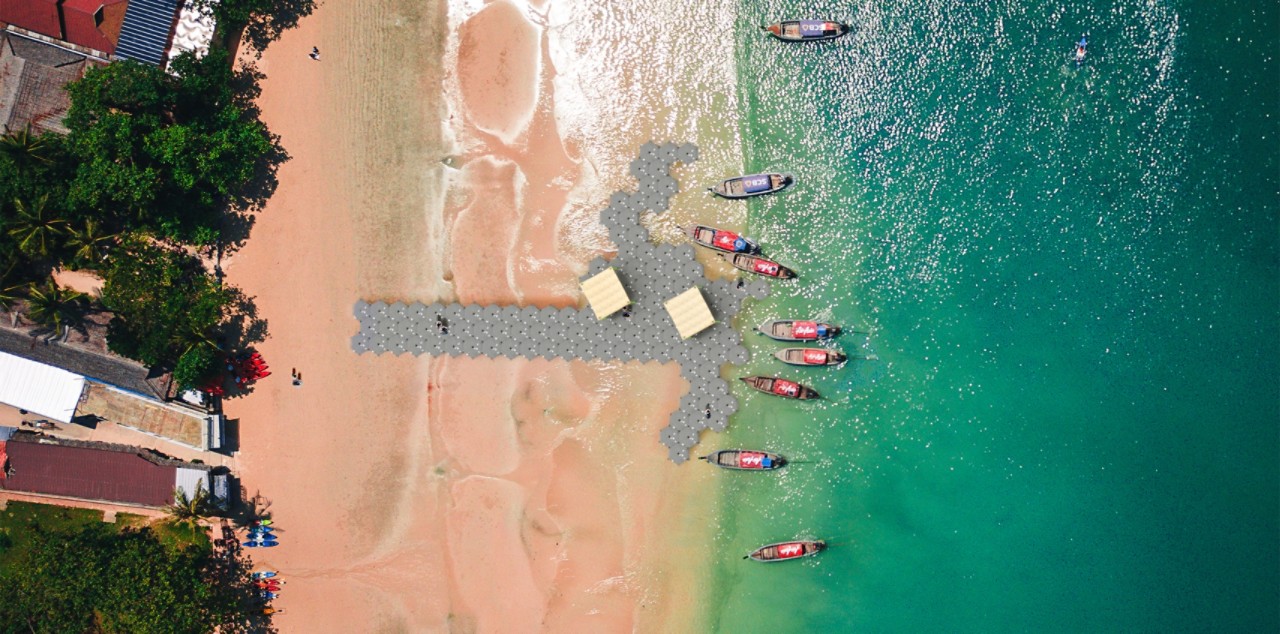


BESIGN The Sustainable Design School - 2020 Partnership
Everything began with a wide research around demographics, socio-economic aspects and water mobility of Southeast Asia. The research narrowed down to one country: The Philippines.
The Philippines is composed of more than 7,100 islands inhabited by a growing population. With an average age of 23, Filipinos are innovative and creative. They prefer traditional methods and are deeply rooted in their culture. They are community centered and they live with the spirit of togetherness.
The vast majority of the population is located within coastal areas and is highly dependent on the sea for their survival. As a developing country, the problem of plastic pollution is apparent. The country is the 3rd largest contributor to marine pollution and is experiencing a recent rise in sea levels due to climate change.
To respond to these problems, we focused on using this plastic waste as a resource by integrating the local community spirit. For this, we created a new approach dedicated to the Toyota Mobility Foundation, with the aim of having direct impact on the Toyota Corporation. In our solution, Toyota acts as a caretaker who understands of the locals through a collaborative process. It leads to complex problem solving for a better future of the local population
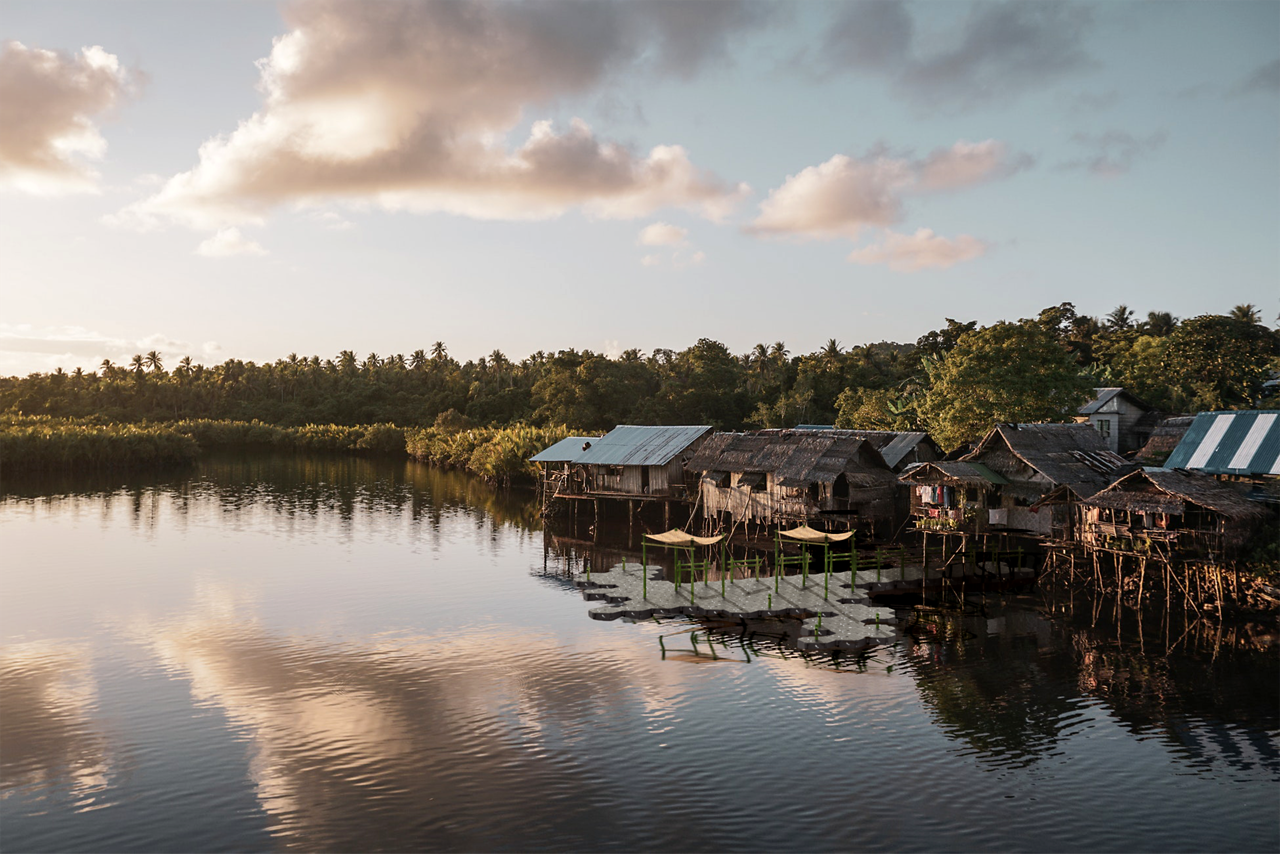
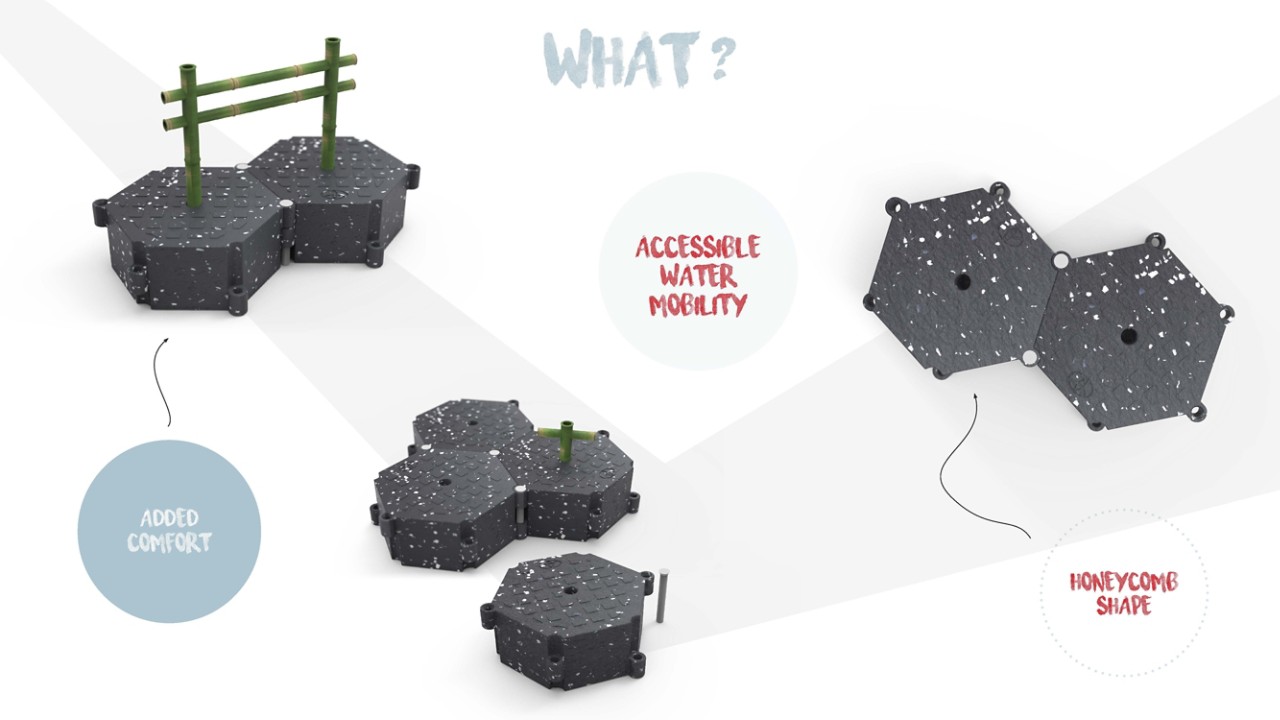
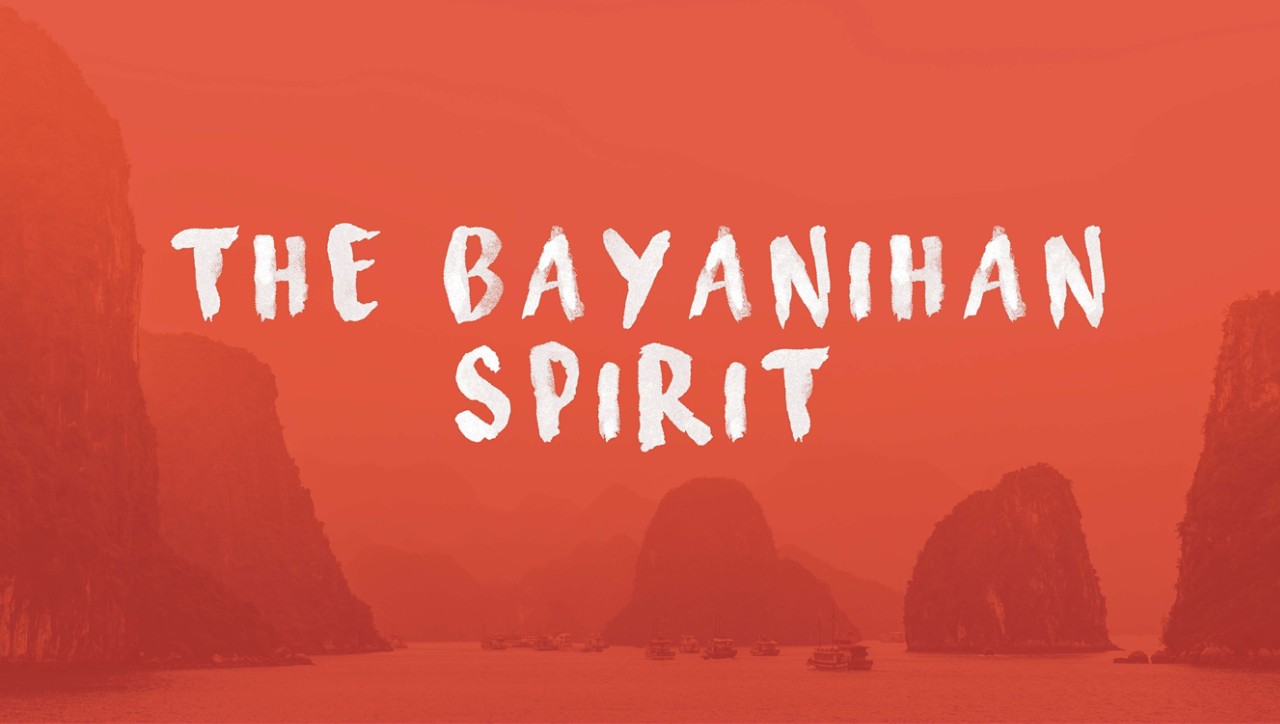
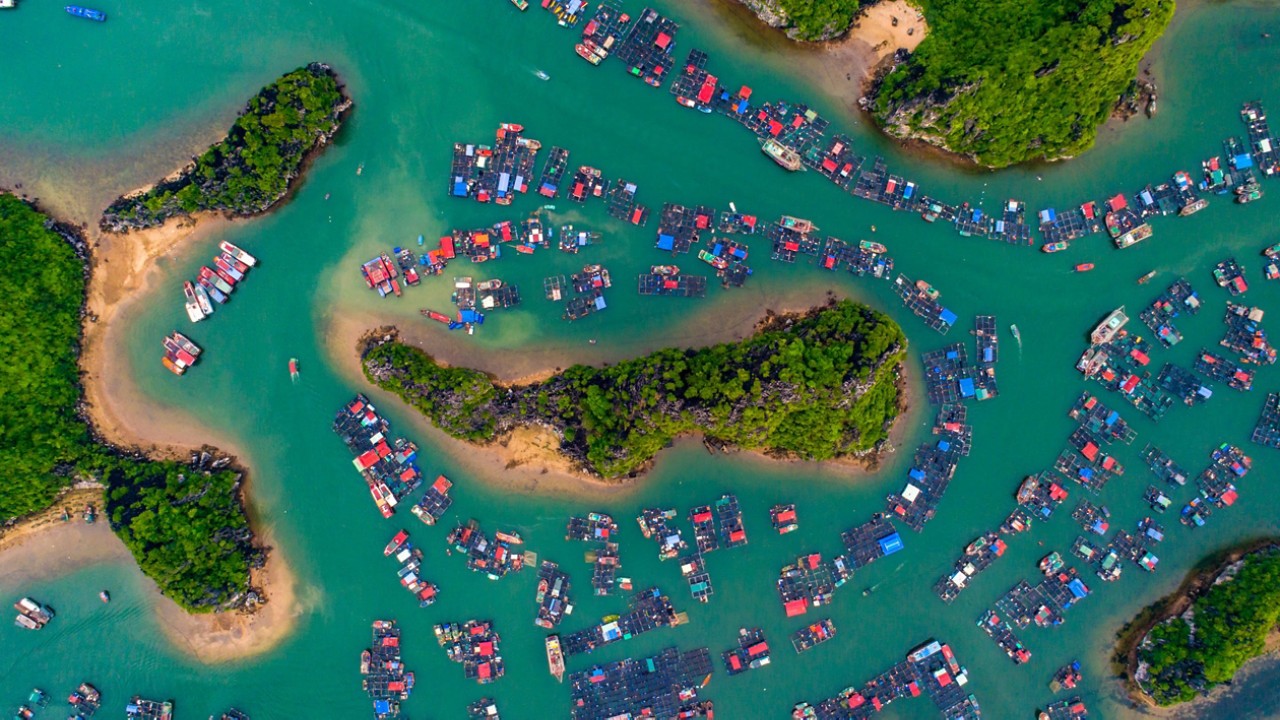
There are two ways to collect. One is through the “Basura Kolek”. The aim of this product is to collect the plastic before it enters the ocean; using an autonomous floating bin positioned near river openings and ports. This will also generate public awareness on recycling plastic.
Next, the “Punto Kolek” is a collection point dedicated to the local population so that they can recycle the plastic in exchange for money.
’Using this plastic waste as a resource by integrating the local community spirit.’
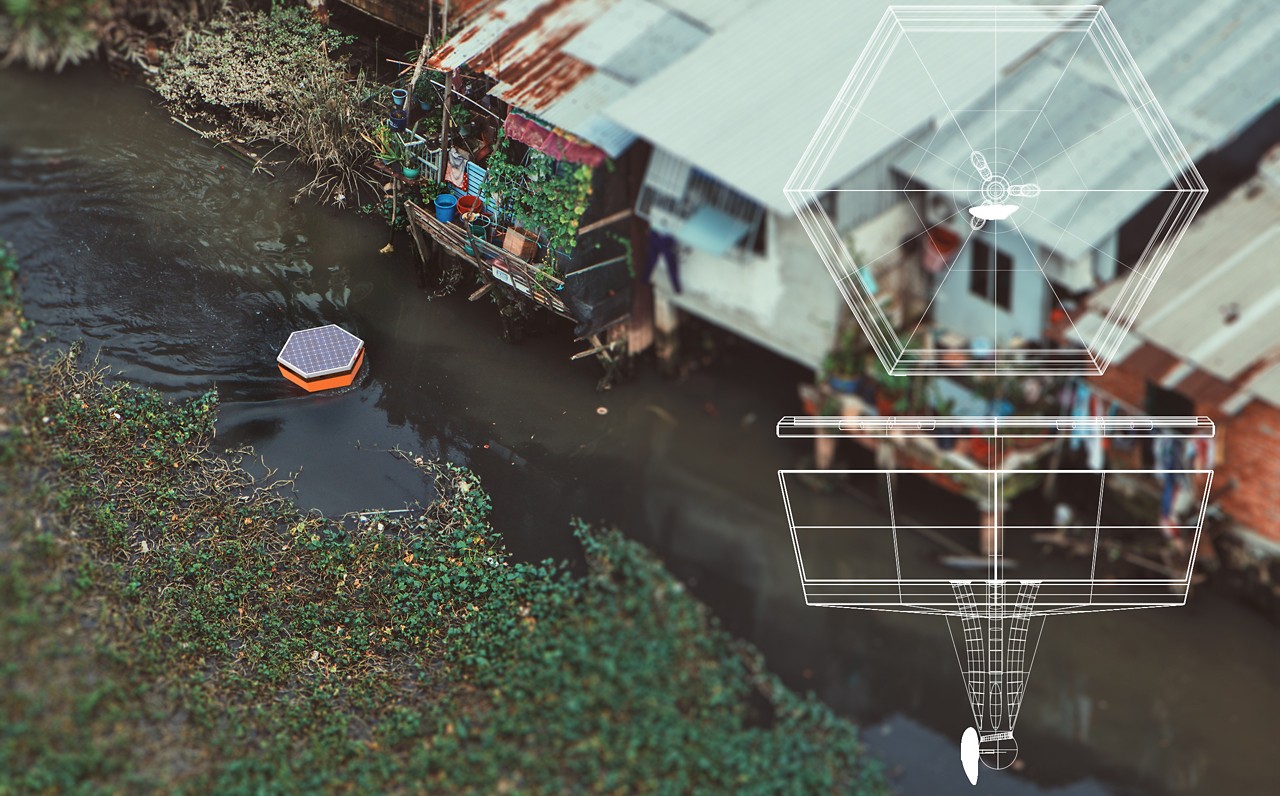
The plastic collected is then taken to the “Pagawaan”. The aim of this place is to contribute in improving the livelihood of the local communities. It is open for Filipinos to collaborate and create objects according to their needs. Here, the plastic is shredded and transformed into a new raw material with the use of free source machines.
This leads us to the first creation, the “Puerto”. This is a modular port system made from the recycled plastic to provide access to water transport in remote islands. The form of each Puerto is co-created with Toyota, to integrate locals from the beginning of the process. It is done so that they can collaborate with the locals, share knowledge and build the bamboo section of the Puerto.
Another example of creation is the “Baha Balsa”. This boat makes flood rescue operations more accessible through integrating the local resources. The “Baha Balsa” is a low cost and quick to assemble boat which is made from bamboo, recycled plastic, and upcycled rubber waste. It enables the people to face the changing environment.
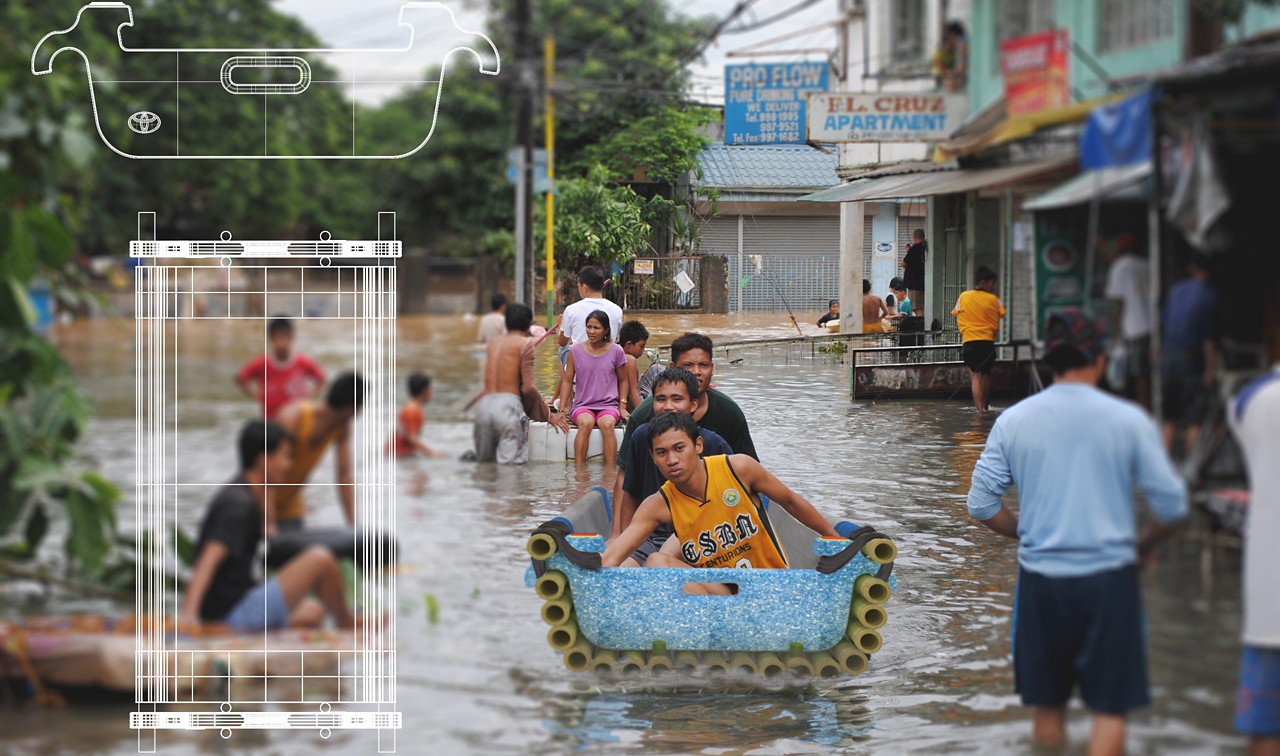
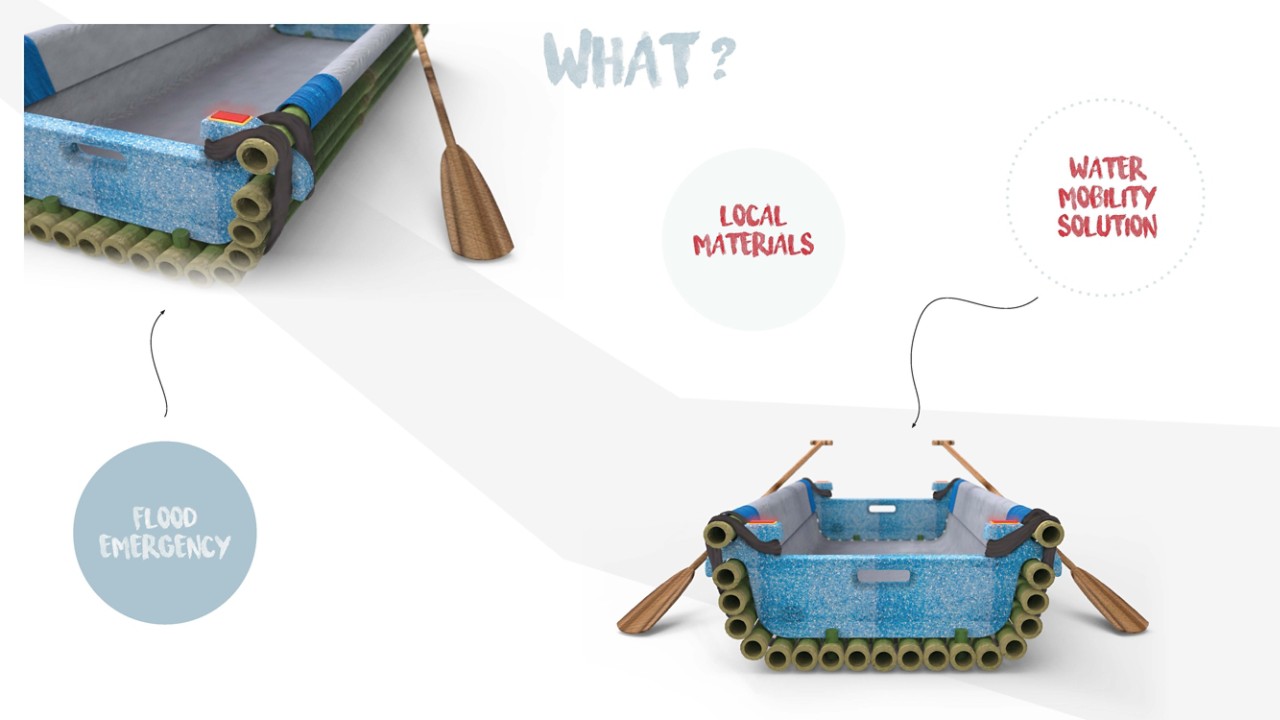
At its core, the Bayanihan Project is about providing help where it is most needed according to the target. We achieve this through the key factor of collaborating with locals. It challenges the norms and creates a new way on how to answer to the local needs, where the Mobility Foundation becomes the eye and analyst of the Toyota Corporation.